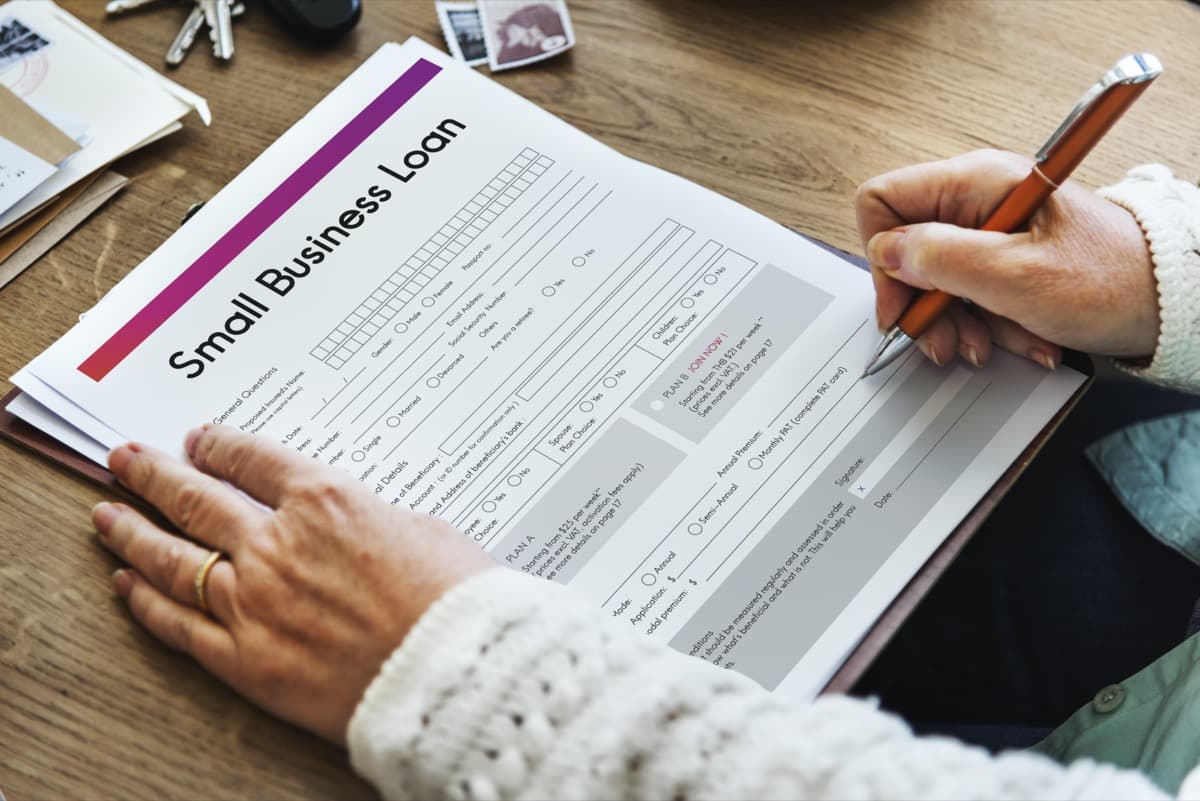

Finance
How Long To Establish Business Credit
Published: January 8, 2024
Establishing business credit takes time and effort. Learn how long it can take and how it can benefit your finance options.
(Many of the links in this article redirect to a specific reviewed product. Your purchase of these products through affiliate links helps to generate commission for LiveWell, at no extra cost. Learn more)
Table of Contents
Introduction
When starting a business, it’s not just about the products or services you offer or the clients you acquire. Building a strong financial foundation is equally important. This is where business credit plays a crucial role. Establishing business credit is essential for the long-term success of your company.
Business credit refers to the creditworthiness of a business entity, separate from its owners or shareholders. It allows businesses to access loans, lines of credit, and other financial resources to fund their operations, expand their reach, and manage cash flow efficiently.
In this article, we will discuss the importance of establishing business credit and how it can benefit your company. We will also explore the factors that influence the time needed to establish business credit and provide actionable steps to help you navigate the process effectively. Additionally, we will provide tips on how to build business credit faster.
Whether you’re a startup or an established business, taking the time to establish and maintain good business credit is crucial for your financial stability and growth. So let’s dive in and learn more about this essential aspect of running a successful company.
What is Business Credit?
Business credit is the creditworthiness of a business entity that is separate from the personal credit history of the business owner or shareholders. It is a financial tool that allows companies to access capital and financial resources to support their operations and growth. Business credit is essential for businesses of all sizes and industries, from startups to well-established corporations.
Just like individuals have personal credit scores, businesses have business credit scores. These scores reflect the creditworthiness of a business and are based on various factors, including payment history, credit utilization, and the length of credit history.
Business credit plays a crucial role in helping companies access financing options such as business loans, lines of credit, vendor credit, and trade credit. It allows businesses to manage cash flow effectively, invest in new opportunities, and build a strong financial foundation.
Establishing and maintaining good business credit is important for several reasons:
- Separation from Personal Finances: Building business credit helps separate your personal finances from your business’s financial obligations. This protects your personal assets and ensures that your personal credit history is not affected by your business’s financial activities.
- Access to Financing: Good business credit makes it easier to obtain financing options for your business. Lenders and financial institutions use your business credit score to assess your creditworthiness, determine interest rates, and approve loan applications.
- Supplier Relationships: Strong business credit can help you build and maintain positive relationships with suppliers and vendors. With good credit, suppliers are more likely to extend favorable payment terms, such as longer payment windows or discounts on bulk orders.
- Growth and Expansion: By establishing business credit, you can access capital to fuel growth and expansion opportunities. Whether you’re looking to open new locations, invest in equipment, or launch new products, having good business credit makes it easier to obtain the necessary financing.
- Better Cash Flow Management: Business credit provides access to lines of credit and trade credit, which can help manage cash flow gaps and ensure consistent operations. This allows you to pay suppliers and vendors on time and take advantage of favorable business opportunities.
Now that we understand the importance of business credit, let’s explore the factors that influence the time needed to establish it.
Why is Establishing Business Credit Important?
Establishing business credit is crucial for the financial health and success of your company. Whether you’re a startup or an established business, there are several reasons why building strong business credit should be a top priority:
- Separation of Personal and Business Finances: Establishing business credit helps separate your personal finances from your company’s financial obligations. This separation protects your personal assets and prevents your personal credit history from being adversely affected by your business’s financial activities.
- Access to Funding: Having solid business credit makes it easier to access funding options such as loans, lines of credit, and business credit cards. Lenders and financial institutions rely on your business credit history to assess your creditworthiness and determine the terms and conditions of financing.
- Better Vendor Relationships: Good business credit opens the door to positive relationships with suppliers and vendors. It allows you to negotiate favorable payment terms, such as longer payment periods or discounted rates, which can significantly impact your cash flow and bottom line.
- Growth and Expansion: Building business credit enables you to access capital for growth and expansion initiatives. Whether you’re looking to open new locations, invest in new equipment, or launch new product lines, having a solid credit profile increases your chances of obtaining the necessary financing.
- Favorable Insurance Rates: Insurance providers often consider a business’s credit history when determining insurance premiums. By establishing good business credit, you can potentially secure better rates for business insurance, thereby reducing your overall operating costs.
- Professional Reputation: A strong business credit profile establishes your company’s credibility and professionalism in the eyes of lenders, suppliers, and potential partners. It demonstrates that you are a reliable and trustworthy business entity, which can enhance your reputation and attract new opportunities.
By prioritizing the establishment of business credit, you position your company for long-term financial stability, growth, and success. Now that we understand the importance of business credit, let’s explore the factors that influence the time needed to establish it.
Factors That Influence the Time Needed to Establish Business Credit
The time it takes to establish business credit can vary depending on several factors. While there is no exact timeline, understanding these factors can give you insights into the process and help you manage your expectations. Here are some key factors that influence the time needed to establish business credit:
- Business Structure: The legal structure of your business can affect how quickly you can establish business credit. For example, establishing credit for a sole proprietorship may be quicker since personal credit history is often used. On the other hand, forming a separate legal entity like a corporation or LLC may take more time as you build credit solely under the business’s name.
- Business Age: The age of your business plays a role in establishing credit. Typically, newer businesses may take more time to establish credit compared to businesses with a longer operating history. Lenders and credit bureaus like to see a track record of financial responsibility and stability.
- Payment History: Your payment history is a crucial factor in building business credit. Consistently making payments on time and in full can help establish a positive credit history faster. Late or missed payments can have a negative impact on your business credit score and may slow down the process of building credit.
- Utilization of Credit: How you use credit also influences the time it takes to establish business credit. Keeping credit utilization low, ideally below 30% of your available credit, demonstrates responsible credit management and can positively impact your creditworthiness.
- Business Relationships: Building strong relationships with vendors, suppliers, and lenders can expedite the process of establishing business credit. Regularly working with trusted partners who report your payment history to credit bureaus helps create a positive credit profile.
- Business Financials: The financial stability and performance of your business are important when establishing credit. Lenders and credit bureaus may review your financial statements, including income statements and balance sheets, to assess your creditworthiness.
- Industry Norms: The industry you operate in can also impact the time it takes to establish business credit. Some industries may have stricter lending requirements or different credit evaluation processes, which may affect the speed at which you can establish credit.
While these factors can influence the time needed to establish business credit, it’s important to remember that building credit is a gradual process. Consistent financial responsibility, timely payments, and positive business relationships are key to establishing a strong credit profile for your company.
Now that we understand the factors that influence the time needed to establish business credit, let’s proceed to the next section, where we will discuss the steps involved in the process.
Steps to Establish Business Credit
Establishing business credit is a deliberate process that requires careful attention to detail and proactive financial management. Follow these steps to lay the foundation for a strong and reliable business credit profile:
- Incorporate Your Business: Choose a legal structure for your business, such as a corporation or LLC, to separate your personal and business finances.
- Obtain an Employer Identification Number (EIN): Apply for an EIN from the IRS. This unique identifier will be used to identify your business for credit purposes.
- Open a Business Bank Account: Open a separate bank account for your business to keep personal and business finances separate.
- Establish a Business Address and Phone Number: Have a physical business address and a dedicated phone number for your company. This helps establish credibility with lenders and credit agencies.
- Register with Business Credit Reporting Agencies: Register your business with business credit reporting agencies, such as Dun & Bradstreet, Experian, and Equifax. This allows them to track your business credit activity.
- Obtain a DUNS Number: Obtain a DUNS number, which is a unique identifier assigned by Dun & Bradstreet. Many lenders and credit agencies use this number to identify your business and assess your creditworthiness.
- Start Small: Begin by establishing credit with small, local vendors or suppliers who are more likely to extend credit to newer businesses.
- Apply for a Business Credit Card: Apply for a business credit card and use it responsibly. Make regular, on-time payments to build a positive payment history.
- Establish Trade Lines: Establish trade lines with suppliers or vendors who report payment history to credit bureaus. Maintain a good payment record to build credit.
- Monitor Your Business Credit: Regularly review your business credit reports to ensure accuracy and identify any discrepancies or errors that may need to be corrected.
- Manage Your Finances Responsibly: Ensure that your business finances are well-managed. Pay bills on time, keep your debt levels low, and maintain good financial practices.
Remember, building business credit is a gradual process. Consistency and responsible financial management are key to establishing a solid credit profile for your business. Now, let’s explore how long it typically takes to establish business credit.
How Long Does it Take to Establish Business Credit?
The time it takes to establish business credit can vary based on several factors, including the steps taken, the financial history of the business, and the industry norms. While there is no fixed timeframe, it generally takes around six months to a year to begin seeing a positive impact on your business credit profile.
During the initial phase, focus on completing the foundational steps to establish your business credit, such as incorporating your business, obtaining an EIN, and opening a business bank account. These steps are crucial for separating your personal and business finances and setting the groundwork for building business credit.
Once you’ve completed the foundational steps, actively working on building credit is important. Begin by applying for a business credit card and using it responsibly. Make consistent, on-time payments and keep your credit utilization low. Utilize trade lines with vendors that report payment history to credit bureaus, and strive for positive relationships with suppliers that offer favorable payment terms.
As you continue to demonstrate responsible financial behavior, your business credit profile will gradually improve. Lenders and credit agencies will take notice of your payment history and creditworthiness. Over time, you may be offered higher credit limits or more favorable financing terms.
It’s important to note that building business credit is an ongoing process. It requires consistent financial management and responsible credit utilization. Continuing to monitor your business credit reports, maintaining good payment habits, and cultivating positive relationships with creditors will contribute to the long-term growth and strength of your business credit profile.
While it may take some time to establish strong business credit, the benefits are well worth it. Having a solid credit profile can provide your business with access to better financing options, favorable payment terms, and increased credibility in the eyes of lenders, suppliers, and partners.
Now, let’s explore some tips on how to build business credit faster.
Tips for Building Business Credit Faster
Building business credit is a process that requires consistent effort and responsible financial management. While there are no shortcuts, following these tips can help you expedite the process of building business credit:
- Establish a Clear Business Identity: Ensure that your business has a separate legal structure, a dedicated business address, and phone number. This will help establish credibility and separate your personal and business finances.
- Open a Business Bank Account: Open a business bank account and use it exclusively for business transactions. This will help demonstrate financial stability and build a positive banking relationship.
- Apply for a Business Credit Card: Apply for a business credit card and use it responsibly. Make regular, on-time payments and keep your credit utilization low. This will help establish a positive payment history and improve your creditworthiness.
- Establish Trade Lines: Work with suppliers or vendors who report payment history to credit bureaus. Make timely payments and maintain good relationships to build a strong credit profile.
- Pay Bills on Time: Consistently pay your bills and invoices on time. Late or missed payments can have a negative impact on your business credit profile.
- Monitor and Correct Errors: Regularly review your business credit reports and address any errors or inaccuracies promptly. This will ensure that your credit profile is accurate and reflects your financial responsibility.
- Build Positive Relationships: Cultivate strong relationships with lenders, suppliers, and other partners. Positive business relationships can help improve your creditworthiness and provide opportunities for favorable payment terms.
- Manage Debt Responsibly: Be mindful of your business’s debt and manage it responsibly. Avoid taking on excessive debt and focus on paying down existing debt in a timely manner.
- Monitor Your Personal Credit: While personal credit and business credit are separate, maintaining a good personal credit score can indirectly benefit your business creditworthiness. Pay your personal bills on time and manage your own credit responsibly.
- Seek Professional Guidance: If you’re unsure about the process of building business credit, consider consulting with a financial advisor or credit professional who can provide guidance tailored to your specific situation.
By following these tips and staying committed to responsible financial management, you can accelerate the process of building business credit and position your business for future growth and success.
Now, let’s summarize what we’ve learned so far.
Conclusion
Establishing business credit is a vital step in building a strong financial foundation for your company. It allows you to access funding, manage cash flow, and build credibility in the eyes of lenders, suppliers, and partners. While the timeline for establishing business credit can vary, following the necessary steps and practicing responsible financial management will set you on the right path.
Start by incorporating your business, obtaining an EIN, and opening a business bank account. Register with business credit reporting agencies and obtain a DUNS number to establish your business’s identity. From there, focus on building positive payment history by using business credit cards, managing trade lines, and paying bills on time.
Remember that establishing business credit is a gradual process that requires consistency and responsible financial practices. Monitor your credit reports regularly and correct any errors or discrepancies. Cultivate strong relationships with creditors and suppliers, and manage your debt responsibly.
By following these steps and incorporating the tips provided, you can expedite the process of building business credit. A strong business credit profile will give you access to better financing options, favorable payment terms, and increased credibility within the business community.
Building business credit is an investment in the long-term success of your company. Take the time to establish and nurture your business credit profile, and reap the benefits of financial stability, growth, and opportunities for years to come.
Now that you understand the importance of business credit and the steps involved in establishing it, you can confidently embark on the journey of building a solid credit foundation for your business. Start today and position your company for a brighter financial future.














